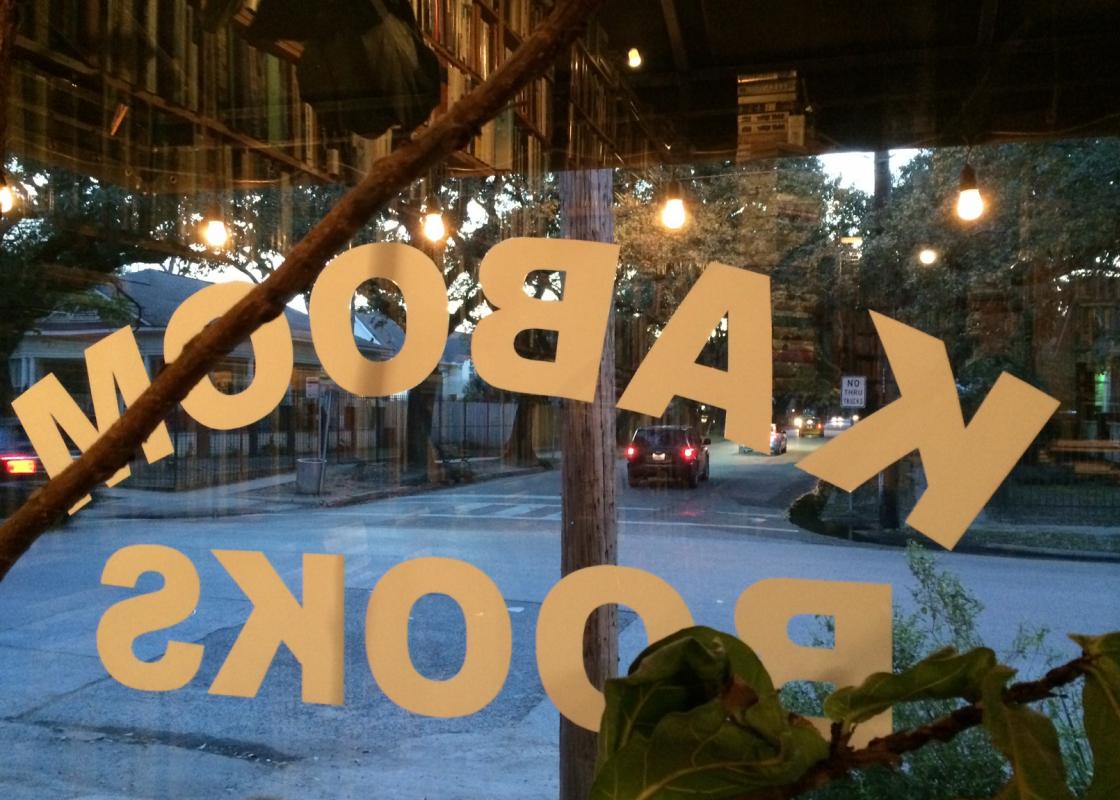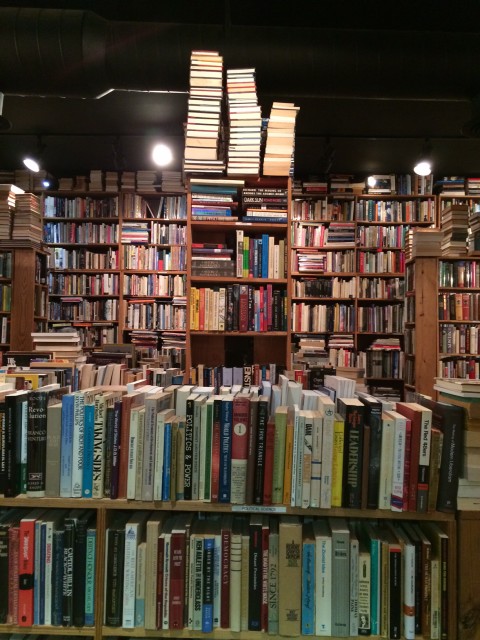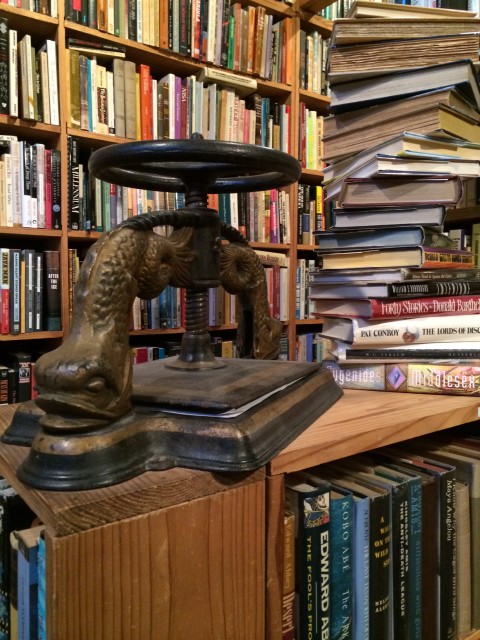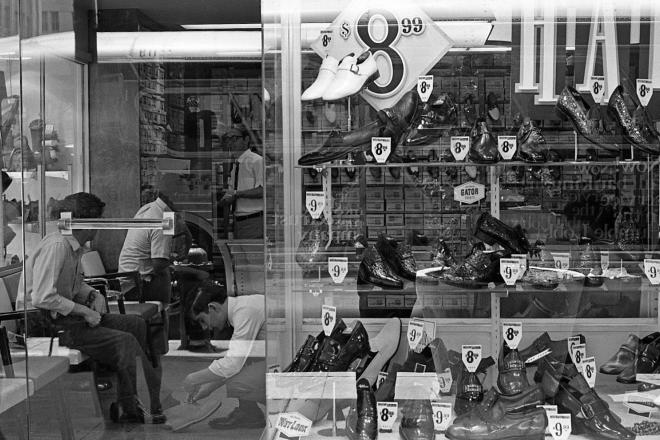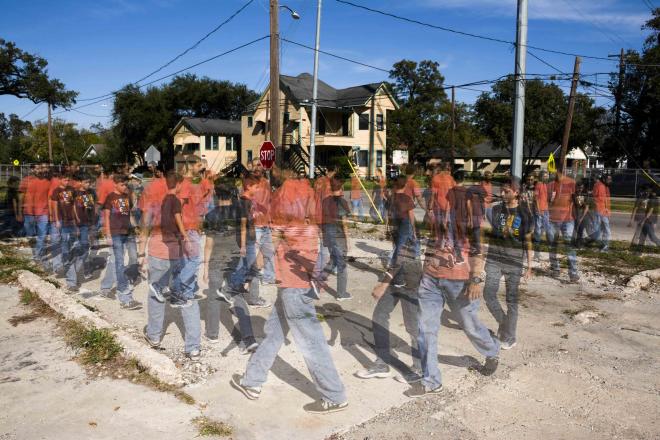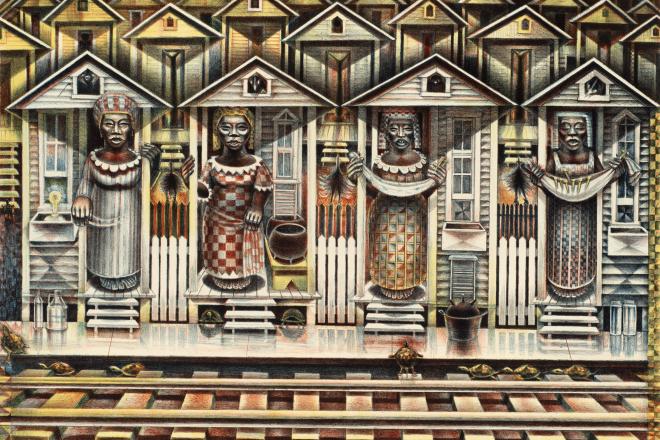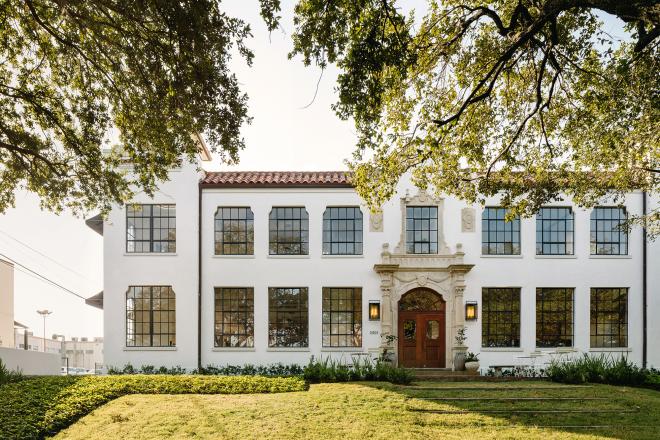OffCite invites short essays, reviews, and observations on specific moments and places for our CiteSeeing series. Interested in contributing your own? Let us know.
Kaboom Books is a generous storefront in an old commercial row in the Woodland Heights. It is my favorite used bookstore. Its storefront announces in large letters: K A B O O M. Inside, the high-ceilinged space is a treasury of carefully chosen books of encyclopedic range. The store is a paper sculpture, as well, shelved and stacked in tall faces and distinct intervals. At the desk, there are spiraling stacked forms and an old hand press ornamented with classical dolphins. The sound of the store, besides a slight creak and sigh, is the p-k, p-k of the owner patiently re-ordering one or another section. "I haven't re-ordered that section," he says, as if that task is a waiting meditation. I imagine him entering the store's recesses and revolving through the world's printed legacy each month or so. The books seem to know his close-up attentions. The stock is paperback and hardback editions, and a few rare ones are in their own room separated by a wire grate that may have been part of the old storefront.
Kaboom is co-owned by John Dillman. John's conversation is patient, roaming, thematic, worldly, and wry. He can have come only from a street-wise, storytelling culture: New Orleans. We talked recently about a dying friend, his youthful encounter with a Doppelgänger, the mishap of sharing a name with a NoLa rogue. Conversation with him is shaped by a respect for silence.
Here is a big selection of Manga. Nearby, a room of kid's books. On a recent visit, I asked John if he had a copy of Bernard Rudofsky's Streets for People. He did not. But he knew all about the book, an inquiry into livable streets for American cities. Its author, he told me, had drastically veered in his topics. Rudofsky didn't keep his publishers, and his books didn't go into second printings. Nor did he have Maya Deren's Divine Horsemen, but he had all the Joseph Campbell books that framed it, and the sections for mythology and anthropology nearby were full of the great titles on these topics. The architecture, building, and design sections are very strong. Here I met for the first time, and picked up, Undesigning the Bath. This most understated paperback asks what is needed for a great bathing experience. Leonard Koren questions the role of ambitious high-profile design work in elementary human experiences. He looks to Japan, Tassajara Zen Mountain Center in California, the Native American Sweat Lodge, and the Hammam. Koren is as good or better on wabi-sabi as Tanizaki's In Praise of Shadows.
Thomas Jefferson mail-ordered books; there's no shame in Amazon. Or if there is shame, it is hard to avoid. But at Kaboom, I meet books as they beckon me from the shelf. What will I enjoy in The Architecture of the American Barn? I'll open it and see.
Kaboom Books is at 3116 Houston Avenue, 77009.


